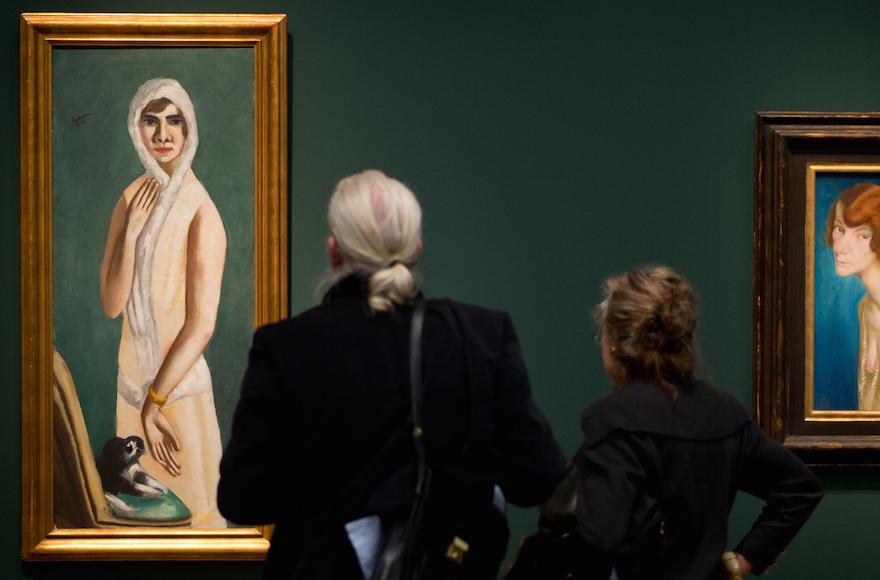MONTREAL (JTA) — “Anti-restitution bias” is being blamed for the sudden decision by the mayor of Dusseldorf, Germany, to cancel a planned exhibit about world-renowned Montreal art dealer Max Stern.
Due to open in February after more than three years of planning by Dusseldorf’s Stadtmuseum, the exhibit – titled “Max Stern: from Dusseldorf to Montreal” – also was slated to include a stop in Israel before finishing in Montreal.
The German city officials on Tuesday cited “current demands for information and restitution in Germany” as the reason for the exhibit’s abrupt cancellation.
“There are very influential people in Germany who don’t want to see art returned to Jews,” Concordia University professor Frank Chalk told the Montreal Gazette.
“There’s an element of anti-Semitism in this. But we never suspected the mayor [of Dusseldorf] could be vulnerable to this kind of pressure,” he said.
A native of Dusseldorf, Stern took over his late father’s art gallery there in 1934 until the Nazis made it illegal for Jews to sell art. During this period, the Nazis looted hundreds of valuable artworks from his gallery.
Stern soon left Germany and settled in Montreal, where he established the renowned Dominion Gallery.
Following his death in 1987, Concordia became the base for the Max Stern Art Restitution Project, which uses funds left by his estate to Montreal’s Concordia and McGill universities and the Hebrew University in Jerusalem to seek out and recover gallery artworks stolen by the Nazis.
To date, 16 have been recovered and returned to their rightful owners, with hundred still unaccounted for.
“We are hard-pressed to understand the justification for this decision,” restitution project director Clarence Epstein told The Canadian Jewish News. “It makes no sense.”
Instead of an exhibit, Dusseldorf plans to stage a symposium on Stern.
JTA has documented Jewish history in real-time for over a century. Keep our journalism strong by joining us in supporting independent, award-winning reporting.






